Best movies & TV Shows like Jazz Casual
A unique, carefully handpicked, selection of the best movies like Jazz Casual . If you liked Jazz Casual then you may also like: Revolution, The Five Pennies, Sunny Side of the Street, Is Everybody Happy?, Mike Wallace Is Here and many more popular movies featured on this list. You can further filter the list even more or get a random selection from the list of similar movies, to make your selection even easier.
Jazz Casual was an occasional series on jazz music on National Educational Television, the predecessor to the Public Broadcasting Service. The show was produced by Richard Moore and KQED of San Francisco, California. Episodes ran for 30 minutes. It ran from 1961 to 1968 and was hosted by jazz critic Ralph Gleason. The series had a pilot program in 1960, however the episode has been destroyed. 31 episodes were broadcast; 28 episodes survive. Most episodes included short interviews with the group leaders.
Jazz Casual
You may filter the list of movies on this page for a more refined, personalized selection of movies.
Still not sure what to watch click the recommend buttun below to get a movie recommendation selected from all the movies on this list
The Five Pennies
Dixieland cornetist Red Nichols runs into opposition to his sound, but breaks through to success. He marries a warm, patient woman and even finds time to raise a family. Then tragedy strikes when their daughter contracts polio.
Sunny Side of the Street
A TV worker has fickle designs on an aspiring singer for whom she arranges an audition.
Is Everybody Happy?
It is the story of Ted Lewis, popular band leader and clarinettist. The music for the film was written by Harry Akst and Grant Clarke, except for "St. Louis Blues" by W. C. Handy and "Tiger Rag". The film's title comes from Lewis's catchphrase "Is everybody happy?" The film's soundtrack exists on Vitaphone discs preserved at the UCLA Film and Television Archive, but the film itself is considered a lost film, according to the Vitaphone Project website. A five minute clip from the film can be found on YouTube.
Mike Wallace Is Here
For over half a century, 60 Minutes' fearsome newsman Mike Wallace went head-to-head with the world's most influential figures. Relying exclusively on archival footage, the film interrogates the interrogator, tracking Wallace's storied career and troubled personal life while unpacking how broadcast journalism evolved to today’s precarious tipping point.
Too Late Blues
Ghost is an ideological musician and leader of a jazz band who would rather play his blues in the park to the birds than compromise himself. His peripatetic performances lead him to cross paths with a singer, while his masculinity is thrown into question following a violent brawl.
Satanis: The Devil's Mass
The film is a study of Anton Szandor LaVey, leader of a cult of devil worshipers in San Francisco. He and his Church of Satan are shown performing a black mass, in which a nude woman serves as an altar and a boa constrictor wraps itself around a naked witch. Newsreel footage is included in which LaVey's neighbors are interviewed about the lion which he kept in his house until complaints resulted in the animal's removal to a zoo. The ideology of the Church of Satan is discussed--guilt rejection, sexual freedom, and self-indulgence.
Attack of the 50 Foot Monster Mania
Hosted by everyone's favorite vamp, Elvira, this program is a lighthearted look back at the monster movies of the '50s. All the monsters that scared your parents make appearances here including Godzilla and King Kong. Also included are many interviews with the men behind the monsters including special effects wizards and directors. A special look at the monsters of Japan and Great Britain are included as well.
Star Trek: Voyager - Inside the New Adventure
Star Trek: Voyager – Inside the New Adventure was a special documentary, running for 50 minutes, produced by BECK-OLA Productions for broadcasting by UPN on 9 January 1995, the week prior to the premiere of Star Trek: Voyager. Hosted by Robert Picardo, the program went behind the scenes at the making of the pilot episode, "Caretaker", as well as the creation of the series itself. Segments included interviews with the cast and crew, as well as a "day-in-the-life" feature following Ethan Phillips during the filming of the Ocampa desert scenes.
The Rejected
The Rejected is a made-for-television documentary film about homosexuality, the first of its kind to be broadcast on American television. It was first shown on KQED on September 11, 1961, and was later syndicated to National Educational Television (NET) stations across the United States, receiving positive critical reviews.
The Subterraneans
A disillusioned writer explores the subterranean depths of San Francisco's North Beach district.
Last Free Ride
The story of Sausalito's houseboat war and the struggle of the people to survive an onslaught by cops, lawyers and courts all stacked against them. Joe Tate and the Redlegs star as the ragtag leaders of the resistance.
Disc Jockey
National DJs help a promoter make an unknown girl a star, to prove the power of radio over TV.
20/20
20/20 is an American television newsmagazine that has been broadcast on ABC since June 6, 1978. Created by ABC News executive Roone Arledge, the show was designed similarly to CBS's 60 Minutes but focuses more on human interest stories than international and political subjects. The program's name derives from the "20/20" measurement of visual acuity. The hour-long program has been a staple on Friday evenings for much of the time since it moved to that timeslot from Thursdays in September 1987, though special editions of the program occasionally air on other nights.
The 700 Club
The 700 Club is the flagship television program of the Christian Broadcasting Network, airing in syndication throughout the United States and available worldwide on CBN.com. Airing each weekday, the news magazine program features live guests, daily news, contemporary music, testimonies, and Christian ministry. In production since 1966, it is one of the longest-running television programs in broadcast history. It is currently hosted by Pat Robertson, Gordon P. Robertson and Terry Meeuwsen. Since 2010, health reasons have prevented Pat Robertson from hosting on a regular basis. As of 2013, he only hosts when able; Gordon P. Robertson is a regular host. Previous co-hosts include Ben Kinchlow, Sheila Walsh, Danuta Rylko Soderman, Kristi Watts, and Lisa Ryan. Tim Robertson served as host for a year from 1987-88 along with Kinchlow and actress Susan Howard while Pat Robertson ran unsuccessfully for President of the United States in the 1988 campaign. The program also features major news stories plus in-depth investigative reporting by the CBN News team with Lee Webb serving as the CBN News anchorman. Celebrities and other guests are often interviewed about religious views. Religious lifestyle issues are presented from distinct Pentecostal/charismatic ideological viewpoints.
Access Hollywood
Access Hollywood is a weekday television entertainment news program covering events and celebrities in the entertainment industry. It was created by former Entertainment Tonight executive producer Jim Van Messel, and is currently directed by Robert Silverstein. In previous years, Doug Dougherty and later Christopher A. Berry directed the program. Access Hollywood primarily focuses on news in the music, television, and film industries. The United States version began broadcasting on September 9, 1996, and is nationally syndicated in the United States. In 2003, a British version of the show began production and in an Irish version began in 2006 airing on the now defunct Channel 6, now known as 3e. In Canada, CTV Two has aired the program since September 5, 2011.
The Barbara Stanwyck Show
The Barbara Stanwyck Show is an American anthology drama television series which ran on NBC from September 1960 to September 1961. Barbara Stanwyck served as hostess, and starred in all but four of the half-hour productions. The four she did not star in were actually pilot episodes of potential series programs which never materialized. Stanwyck won the Emmy Award in 1961 for Outstanding Performance by an Actress in a Series. Three of the shows in which Stanwyck starred were an attempt at spinning off a dramatic series of her own, in which she appeared as "Josephine Little", an American woman running an import-export shop in Hong Kong. The series, produced at Desilu Studios, was directed by Stuart Rosenberg. The Barbara Stanwyck Show lasted one season. It aired at 10 p.m. Eastern on Mondays opposite Jackie Cooper's military sitcom Hennesey on CBS and the second half of Gardner McKay's Adventures in Paradise on ABC.
The Brak Show
The Brak Show is an animated television series that aired on Cartoon Network's late night programming block, Adult Swim. The Brak Show is a spin-off of the animated television series, Space Ghost Coast to Coast, and featured recurring characters from Space Ghost Coast to Coast and Cartoon Planet. Both programs used stock footage from the Hanna-Barbera cartoon Space Ghost. The protagonist is Brak, voiced by Andy Merrill, who developed a quirky persona for the character. An earlier version of the pilot episode, "Mr. Bawk Ba Gawk", originally aired prior to the official launch of Adult Swim on Cartoon Network on December 21, 2000, as part of a preview of upcoming Adult Swim shows. The series made its official debut during the night Adult Swim officially launched on September 2, 2001, and ended on December 31, 2003, with a total of 28 episodes. On May 24, 2007 a webisode for the series was released on Adult Swim Video, ending the series.
Captain Kangaroo
Captain Kangaroo was an American children's television series which aired weekday mornings on the American television network CBS for nearly 30 years, from October 3, 1955 until December 8, 1984, making it the longest-running nationally broadcast children's television program of its day. In 1986, the American Program Service integrated some newly produced segments into reruns of past episodes, distributing the newer version of the series until 1993. The show was conceived and the title character played by Bob Keeshan, who based the show on "the warm relationship between grandparents and children." Keeshan had portrayed the original Clarabell the Clown on The Howdy Doody Show when it aired on NBC. Captain Kangaroo had a loose structure, built around life in the "Treasure House" where the Captain would tell stories, meet guests, and indulge in silly stunts with regular characters, both humans and puppets. The show was telecast live to the East Coast and the Midwest for its first four years and broadcast on kinescope for the West Coast, as Keeshan would not perform the show live three times a day, and was in black-and-white until 1966. The May 17, 1971 episode saw two major changes on the show: The Treasure House was renovated and renamed "The Captain's Place" and the Captain replaced his navy blue coat with a red coat. In September 1981, CBS shortened the hour-long show to a half-hour, briefly retitled it Wake Up with the Captain, and moved it to an earlier time slot; it was later moved to weekends in September 1982, and returned to an hour-long format. It was canceled by CBS at the end of 1984.
Dinner: Impossible
Dinner: Impossible is an American television program broadcast by the Food Network. The first episode aired on January 24, 2007 and the last episode aired in 2010. Food Network began airing the eighth season on March 3, 2010. Each episode, the host is given a challenge that must be completed within a given time. Challenges have included preparing a large dinner aboard a luxury train, an "authentic" 18th-century American colonial dinner, and a luxury meal on a small, isolated, New England island.
The Doris Day Show
The Doris Day Show is an American sitcom that was originally broadcast on the CBS network from September 1968 until March 1973, remaining on the air for five seasons and 128 episodes. In addition to showcasing Doris Day, the show is remembered for its many abrupt format changes over the course of its five-year run. It is also remembered for Day's statement, in her autobiography Doris Day: Her Own Story, that her husband Martin Melcher had signed her to do the TV series without her knowledge, a fact she only discovered when Melcher died of heart disease on April 20, 1968. The TV show premiered on Tuesday, September 24, 1968.
Gardeners' World
Gardeners' World is a long-running BBC Television programme about gardening, first broadcast in 1968 and still running as of 2013. Its first episode was presented by Ken Burras and came from Oxford Botanical Gardens. The magazine BBC Gardeners' World is a tie-in to the programme. Most of its episodes have been 30 minutes in length, although there are many specials that last longer. The 2008 and 2009 series used a 60-minute format.
Max Headroom
Max Headroom is a British-produced American satirical science fiction television series by Chrysalis Visual Programming and Lakeside Productions for Lorimar-Telepictures that aired in the United States on ABC from March 1987 to May 1988. The series was based on the Channel 4 British TV pilot produced by Chrysalis, Max Headroom: 20 Minutes into the Future. The series is often mistaken as an American-produced show due to the setting and its use of an almost entirely US cast along with being broadcast in the USA on the ABC network. Cinemax aired the UK pilot followed by a six-week run of highlights from The Max Headroom Show, a music video show where Headroom appears between music videos. ABC took an interest in the pilot and asked Chrysalis/Lakeside to produce the series for US audiences. The show went into production in late 1986 and ran for six episodes in the first season with eight being produced in season two.
Mister Rogers' Neighborhood
Mister Rogers' Neighborhood is an American children's television series that was created and hosted by namesake Fred Rogers. The series originated in 1963 as Misterogers on CBC Television, and was later debuted in 1966 as Misterogers' Neighborhood on the regional Eastern Educational Network, followed by its US network debut on February 19, 1968, and it aired on NET and its successor, PBS, until August 31, 2001. The series is aimed primarily at preschool ages 2 to 5, but has been stated by PBS as "appropriate for all ages". Mister Rogers' Neighborhood was produced by Pittsburgh, Pennsylvania, USA public broadcaster WQED and Rogers' non-profit production company Family Communications, Inc.; previously known as Small World Enterprises prior to 1971, the company was renamed The Fred Rogers Company after Rogers' death.
Sarah & Duck
Sarah & Duck is a British animated children's television series created by Sarah Gomes Harris and Tim O'Sullivan, and produced by Karrot Entertainment for the BBC. Designed as a story-driven animation primarily targeted at 4-6 year old children, it was first broadcast on the UK CBeebies channel on 18 February 2013. A total of 40 episodes have been commissioned for the first series. 30 of these will have been shown in the UK by the end of August 2013, with a further 10 in production.
Search for Tomorrow
Search for Tomorrow is an American soap opera that premiered on September 3, 1951, on CBS. The show was moved from CBS to NBC on March 29, 1982. It continued on NBC until the final episode aired on December 26, 1986, a run of thirty-five years. At the time of its final broadcast, it was the longest-running non-news program on television. This record would later be broken by Hallmark Hall of Fame, which premiered on Christmas Eve 1951 and still airs occasionally. The show was created by Roy Winsor and was first written by Agnes Nixon for thirteen weeks and, later, by Irving Vendig.
Soul Train
Soul Train is an American musical variety show that aired in syndication from 1971 to 2006. In its 35-year history, the show primarily featured performances by R&B, soul, and hip hop artists, although funk, jazz, disco, and gospel artists have also appeared. The series was created by Don Cornelius, who also served as its first host and executive producer. Production was suspended following the 2005–06 season, with a rerun package airing for two years after that. As a nod to Soul Train's longevity, the show's opening sequence contained a claim that it was the "longest-running first-run, nationally syndicated program in television history," with over 1,100 episodes produced from the show's debut through the 2005-06 season. Despite the production hiatus, Soul Train will continue to hold this honor until at least 2016, if and when its nearest competitor, Entertainment Tonight, completes its 35th season.
SportsCenter
SportsCenter is a daily sports news television program, and the flagship program of American cable and satellite television network ESPN since the network's launch on September 7, 1979. Originally broadcast only daily, SportsCenter is now shown up to twelve times a day, replaying the day's scores and highlights from major sporting events, along with commentary, previews and feature stories. The show has aired more than 50,000 unique episodes, more than any other program on American television, and is shot in ESPN's high definition studio facilities in Bristol, Connecticut and Los Angeles, California.
Taboo
Taboo is a documentary television series that premiered in 2002 on the National Geographic Channel. The program is an educational look into "taboo" rituals and traditions practiced in some societies, yet forbidden and illegal in others. Each hour long episode details a specific topic, such as marriage or initiation rituals, and explores how such topics are viewed throughout the world. Taboo generally focuses on the most misunderstood, despised, or disagreed-upon activities, jobs, and roles.
You Bet Your Life
You Bet Your Life is an American quiz show that aired on both radio and television. The original and best-known version was hosted by Groucho Marx of the Marx Brothers, with announcer and assistant George Fenneman. The show debuted on ABC Radio in October 1947, then moved to CBS Radio in September 1949 before making the transition to NBC-TV in October 1950. Because of its simple format, it was possible to broadcast the show simultaneously on the radio and on television. In 1960, the show was renamed The Groucho Show and ran a further year. Most episodes are in the public domain. The play of the game, however, was secondary to the interplay between Groucho, the contestants, and occasionally Fenneman. The program was rerun into the 1970s, and later in syndication as The Best of Groucho. As such, it was the first game show to have its reruns syndicated.
Doctor Who Confidential
Doctor Who Confidential is a documentary series created by the British Broadcasting Corporation to complement the revival of the long-running British science fiction television series Doctor Who. Each episode was broadcast on BBC Three on Saturdays, immediately after the broadcast of the weekly television episode on BBC One. The running time of the first two series was 30 minutes, being extended to 45 minutes in the third. BBC Three also broadcast a cut-down edition of the programme, lasting 15 minutes, shown after the repeats on Sundays and Fridays and after the weekday evening repeats of earlier seasons. Described as focusing on the human element of the series, Confidential features behind-the-scenes footage on the making of Doctor Who through clips and interviews with the cast, production crew and other people, including those who have participated in the television series over the years of its existence. Each episode deals with a different topic, and in most cases refers to the Doctor Who episode that preceded it. There have also been two episodes of Doctor Who Confidential broadcast apart from the showing of Doctor Who episodes: in November 2006 an edition subtitled "Music and Monsters" was produced going behind the scenes of a televised concert of soundtrack music produced as part of that year's Children in Need appeal, and on 3 January 2009, a special edition was broadcast to announce the actor chosen to play the Eleventh Doctor.
The Division
The Division is an American crime drama television series created by Deborah Joy LeVine and starring Bonnie Bedelia. The series focused on a team of women police officers in the San Francisco Police Department. The series premiered on Lifetime on January 7, 2001 and ended on June 28, 2004 after 88 episodes.
Captain Z-Ro
Captain Z-Ro is an American children's television show that ran locally on KRON in San Francisco beginning in November 1951, and was later nationally syndicated in the United States, ending its run of original episodes on June 10, 1956. It remained in syndication until 1960. Modeled on the science fiction space operas popular at the time, it featured sets and costumes emulating the futuristic designs of Buck Rogers and Flash Gordon.
MegaStructures
MegaStructures is a documentary television series appearing on the National Geographic Channel in the United States and the United Kingdom, Channel 5 in the United Kingdom, France 5 in France, and 7mate in Australia. Each episode is an educational look of varying depth into the construction, operation, and staffing of various structures or construction projects, but not ordinary construction products. Generally containing interviews with designers and project managers, it presents the problems of construction and the methodology or techniques used to overcome obstacles. In some cases this involved the development of new materials or products that are now in general use within the construction industry. MegaStructures focuses on constructions that are extreme; in the sense that they are the biggest, tallest, longest, or deepest in the world. Alternatively, a project may appear if it had an element of novelty or are a world first. This type of project is known as a Megaproject.
6teen
6teen is a Canadian animated sitcom, which premiered in Canada in 2004 on Teletoon. In the USA, 6teen first premiered on Nickelodeon on December 18, 2005 and was removed from the schedule on May 13, 2006. 6teen was previously aired on The N in reruns on December 26, 2005 until July 28, 2006, but then returned to The N as a 24-hour channel on December 31, 2007 until June 21, 2008. In the US 6teen was shown on Cartoon Network after its premiere on October 23, 2008. On Cartoon Network, 6teen had frequent airings weekly since its premiere on October 23, 2008, but got removed from the schedule in mid-November 2009. Then it returned with frequent airings in mid-February 2010, and once again got removed after its series finale on June 21, 2010. In January 2011, 6teen returned for one month only to Cartoon Network, but got removed, with other cancelled series, due to a schedule revamp. It is occasionally shown on Popgirl. The series finale, "Bye Bye Nikki? Part 2", included an acoustic remake of the theme song by Brian Melo. 6teen ended with a total of 93 episodes. DVD and iTunes releases have been made in both Canada and the USA. Though ended, creators Pertsch and McGillis both extended a willingness for a possible two-hour reunion telemovie or a feature film. As of now, it is currently not on Cartoon Network's schedule, but episodes are available from Cartoon Network on Demand in select areas. On January 3, 2011, 6teen returned with reruns to Teletoon, where it airs weekend mornings at 3:00 a.m. EST, and it recently returned to its former weekday schedule at 7:00 p.m. EST. The show is also available on Netflix streaming in the US and in the UK.
Newton's Apple
Newton's Apple is an American educational television program produced and developed by KTCA, and distributed to PBS stations in the United States that ran from 1983 to 1999. The show's title is based on the rumor of Isaac Newton sitting under a tree and an apple falling near him—or, more popularly, on his head—prompting him to ponder what makes things fall, leading to the development of his theory of gravitation. The show was produced by Twin Cities Public Television. For most of the run, the show's theme song was Ruckzuck by Kraftwerk, later remixed by Absolute Music. Later episodes of the show featured an original song. An occasional short feature appeared called "Science of the Rich and Famous" in which celebrities appeared to explain a science principle.
Torchwood Declassified
Torchwood Declassified is a documentary series created by the British Broadcasting Corporation to complement the British science fiction television series Torchwood. Each episode is broadcast on the same evening as the broadcast of the weekly television episode. A second series of Declassified aired alongside the second series of Torchwood. Continuing the tradition of its parent, Doctor Who Confidential, Torchwood Declassified covers themes presented in the just-broadcast episode, as well as providing behind-the-scenes access and footage. Each episode is ten minutes long, compared to Confidential's 30-45 minute length. Following transmission, the episodes were all available for viewing on the BBC's Torchwood website, but were later removed from the site after the end of the first series. Both series of the Declassified installments have been included on the series box sets.
Prehistoric Planet
Prehistoric Planet is a re-version of the BBC's Walking with Dinosaurs and Walking with Beasts series, done by Discovery Channel and NBC for the Discovery Kids network. Though the producers kept nearly all of the original animation, David Bock and Peter Sherman wrote new text for a younger target audience, narrated by Ben Stiller and Christian Slater, and interspersed the scenes with occasional quizzes to act as bumpers around the commercial breaks. New music was incorporated as well. Most marketing and advertising for the series focused on the dinosaur episodes. In addition, the final episode, the Prehistoric Planet Top 10 focused solely on the creatures from Walking With Dinosaurs. Some small content edits were done to allow original programs to fit in the 23 minutes of non-commercial time that a normal half-hour program has on network TV. At present, only Season 1 has been released on home video and DVD.
Have Gun, Will Travel
Have Gun – Will Travel is an American Western television series that aired on CBS from 1957 through 1963. It was rated number three or number four in the Nielsen ratings every year of its first four seasons. It was one of the few television shows to spawn a successful radio version. The radio series debuted November 23, 1958. The television show is presently shown on the Encore-Western channel. Have Gun – Will Travel was created by Sam Rolfe and Herb Meadow and produced by Frank Pierson, Don Ingalls, Robert Sparks, and Julian Claman. There were 225 episodes of the TV series, 24 written by Gene Roddenberry. Other contributors included Bruce Geller, Harry Julian Fink, Don Brinkley and Irving Wallace. Andrew McLaglen directed 101 episodes and 19 were directed by series star Richard Boone.
Armchair Thriller
Armchair Thriller is a British television programme, broadcast on ITV in two series in 1978 and 1980. Owing something to some of the off-shoots of the earlier Armchair Theatre, the new series used scripts adapted from published novels and stories. Although not properly a horror series it included several supernatural elements. Armchair Thriller was produced by Thames Television, but it included serials made by Southern Television. The format was of a twice weekly 25 minute episodes, usually screened on a Tuesday or Thursday at 20:00-21:00.
Land and Sea
Land and Sea is a locally produced Canadian documentary television show broadcast in Newfoundland and Labrador on CBNT-DT in St. John's, and on all CBC Television outlets throughout the province. It has been on the air since 1964; originally a black-and-white program, it began broadcasting in colour in the late '60s/early '70s. There is also a Maritime version of Land and Sea which is broadcast on the full CBC network on Sunday afternoons, and episodes from that version are often alternated with Newfoundland-based episodes.
The Puzzle Place
The Puzzle Place is an American children's television series produced by KCET in Los Angeles, California and Lancit Media in New York City, New York. It premiered on the Public Broadcasting Service on January 16, 1995, and ran for about four years, airing its final episode on December 4, 1998. Reruns were continued until March 31, 2000. The show followed a multi-ethnic group of kids from different parts of the United States who hung out at "the Puzzle Place", which is a teen hangout themed around jigsaw puzzle pieces. In each episode the characters were confronted with an everyday conflict usually encountered in childhood and even early teenagerdom, such as making moral decisions, sharing, racism, sexism, etc.
The Mighty Jungle
The Mighty Jungle is a puppet series for preschoolers in which the narrative of the story is largely crafted by a group of preschoolers who appear in live-action segments interspersed between puppet-acted scenes. It is co-produced by Halifax Film and Decode Entertainment, both DHX Media Companies; it is produced in association with CBC Television. The program is broadcast in Canada on CBC Television, a Canadian television network owned by the Canadian Broadcasting Corporation, the national English-language public broadcaster, in the Kids' CBC programming block, and in the United States on the PBS Kids Sprout cable network.
Airline
Airline is a British television series produced by Yorkshire Television for the ITV network in 1982. The series starred Roy Marsden as Jack Ruskin, a pilot demobbed after the end of the Second World War who starts up his own air freight business. Airline was created by Wilfred Greatorex and lasted for one series of nine episodes broadcast in January & February 1982, with a repeat in the summer of 1984. Other leading cast members were Polly Hemingway, Richard Heffer, Sean Scanlan and Terence Rigby, while noted guest-stars included Anthony Valentine and Walter Gotell. It was partially filmed at the former RAF Rufforth in Yorkshire..
8th Fire
8th Fire: Aboriginal Peoples, Canada & the Way Forward is a Canadian broadcast documentary series, which aired in 2012. Featuring television, radio and web broadcasting components, the series focused on the changing nature of Canada's relationship with its First Nations communities. The television component aired as a four-part documentary series hosted by Wab Kinew as part of CBC Television's Doc Zone, while radio programming devoted to First Nations themes aired on a variety of CBC Radio series and the web component included content from a variety of contributors, including news coverage by other CBC News reporters and a series of short films by 20 First Nations, Inuit and Métis reporters and filmmakers. The series was a shortlisted nominee for the Donald Brittain Award for Best Social/Political Documentary Program, and for Best Cross-Platform Project, Non-Fiction, at the 2013 Canadian Screen Awards.
Graffiti Rock
Graffiti Rock was a hip-hop based television program, originally screened June 29, 1984. Intended as an on-going series, the show only received one pilot episode and aired on WPIX channel 11 in New York City and 88 markets around the country, to good Nielsen ratings. Graffiti Rock resembled a hip hop version of the popular television dance shows at the time such as Soul Train and American Bandstand. The show was created and hosted by Michael Holman, who was the manager of the popular break-dancing crew, the New York City Breakers. The episode features Run D.M.C., Shannon, The New York City Breakers, DJ Jimmie Jazz and Kool Moe Dee and Special K of the Treacherous Three. The New York City Breakers, who were fresh off of their success from the movie, Beat Street, made a showcase appearance. The episode also features television and film actress, Debi Mazar and actor/director Vincent Gallo as dancers on the show. A segment of the show was sampled on The Beastie Boys' LP Ill Communication. "[...] alright, you're scratchin it right now, cut the record back and forth against the needle, back and forth, back and forth, make it scratch, but let me tell you something don't try this at home on your dad's stereo only under hiphop supervision, alright ?" The show has since become an important 'must-see' for hip-hop enthusiasts, alongside such titles as Wild Style and Beat Street.
In Depth
A fondo (English: In Depth) was a Spanish television interview program hosted by Joaquín Soler Serrano that was broadcast on La Primera Cadena of Televisión Española from 1976 until 1981. The program's mission statement, according to its opening title cards, was to interview "the leading figures in letters, the arts, and sciences." Beginning with Jorge Luis Borges, who was the guest on the first episode of A fondo aired on September 8, 1976, the program played host to some of the Spanish speaking world's most respected intellectuals of the day. In 1976 critics awarded the show a Premio Ondas in the "national television" category.
The Great American Dream Machine
The Great American Dream Machine was a weekly satirical variety television series, produced in New York City by WNET and broadcast on PBS from 1971 to 1973. The program was hosted by humorist and commentator Marshall Efron. The show centered around skits and satirical political commentary. The hour and a half long show usually contained at least seven different current event topics. In the second season, the show was trimmed down to an hour. Other notable cast members included Chevy Chase. Contributors included Albert Brooks and Andy Rooney. Some of the skits would later be revamped for the movie The Groove Tube. There were also occasional short films presented on the show, most of them "experimental" or documentaries about artistic endeavours. Some of these were subtitled.
City of Ghosts
Meet the Ghost Club! Their adventures take them all around Los Angeles as they interview ghosts, solve problems and learn about their city's history.
Butternut Square
Butternut Square was a Canadian children's television series which aired on CBC Television between October 19, 1964 and February 10, 1967. The cast featured Ernie Coombs as Mr. Dressup and Fred Rogers as Mister Rogers, both of whom would follow with their own landmark television series. "Butternut Square" was a show designed for young viewers and featured a variety of segments aimed at entertaining and educating children. The program included storytelling, music, puppetry, and educational segments, often focusing on imaginative play and interactive elements to engage its audience. The show aimed to stimulate creativity, encourage learning, and entertain children through a mix of fun activities and storytelling. Although specific details about individual episodes might vary, the overall emphasis was on fostering a sense of wonder, creativity, and learning in its young viewers.

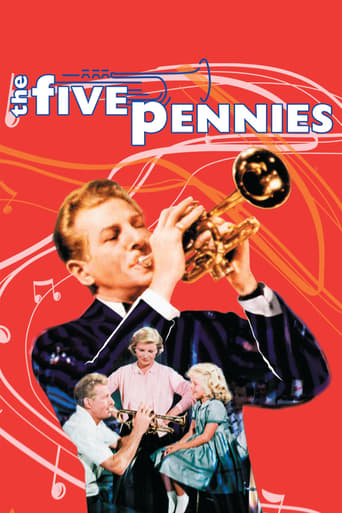


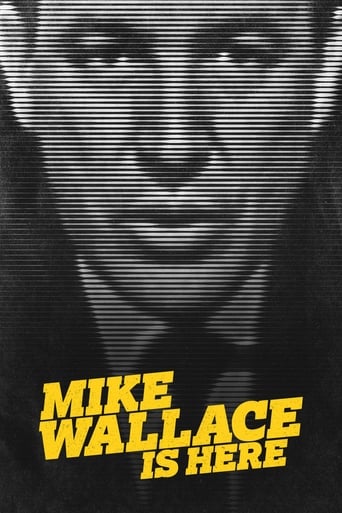


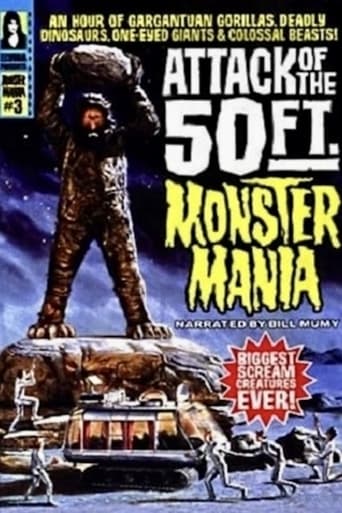


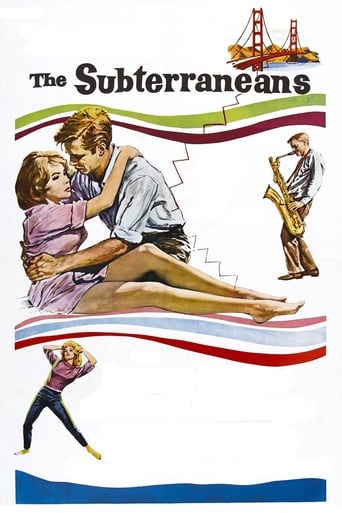







































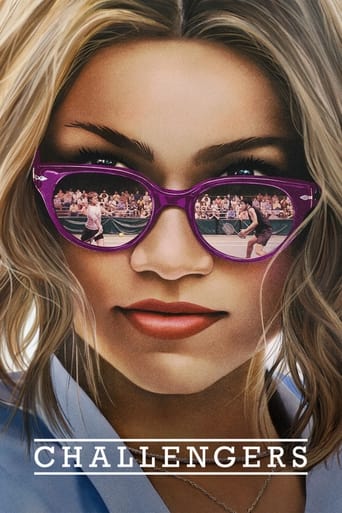
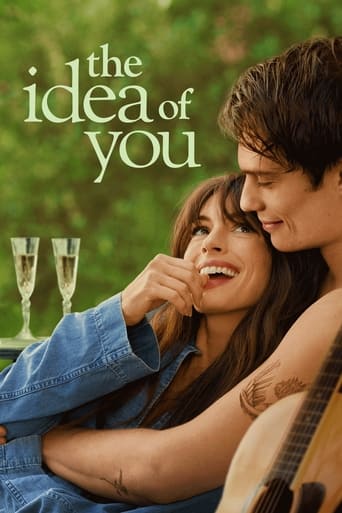
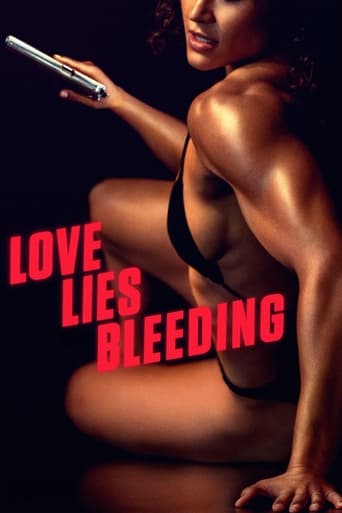
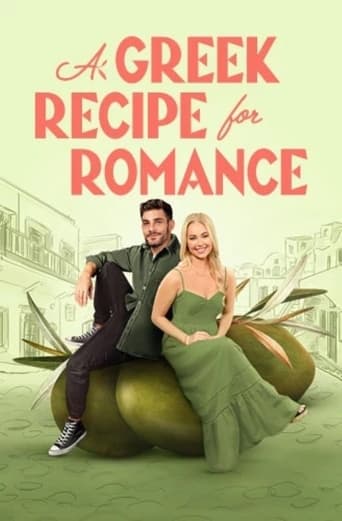

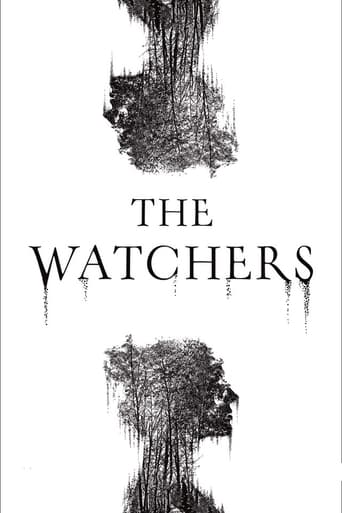
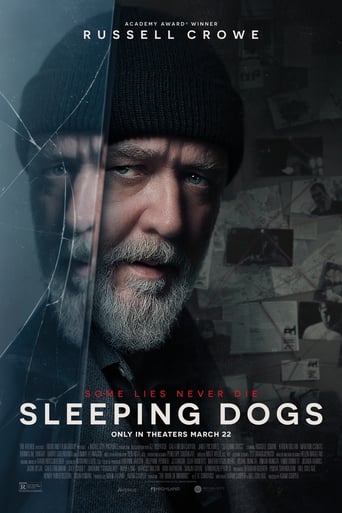

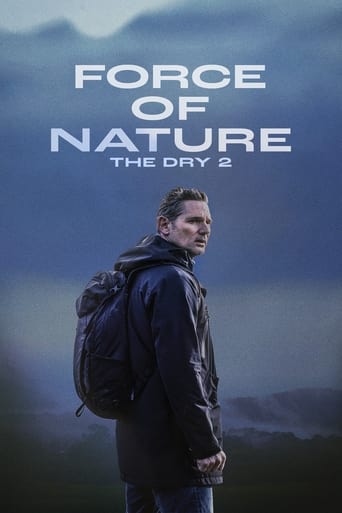
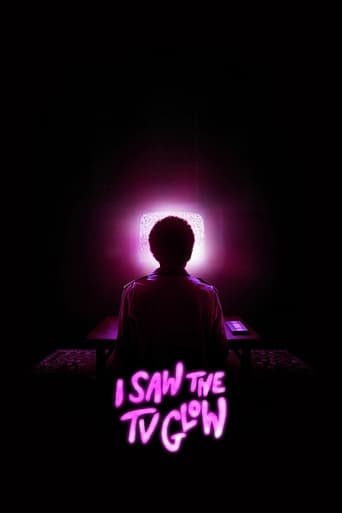
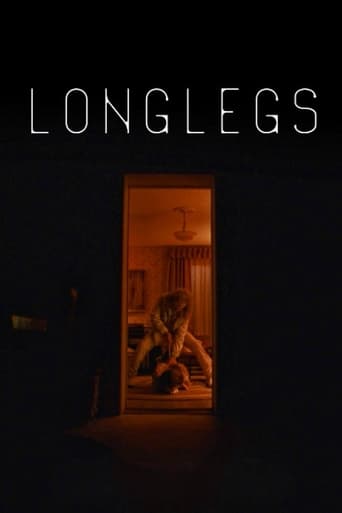
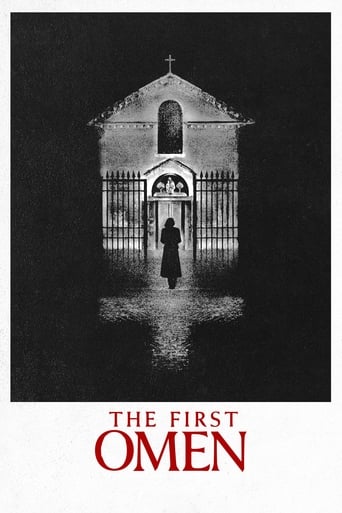
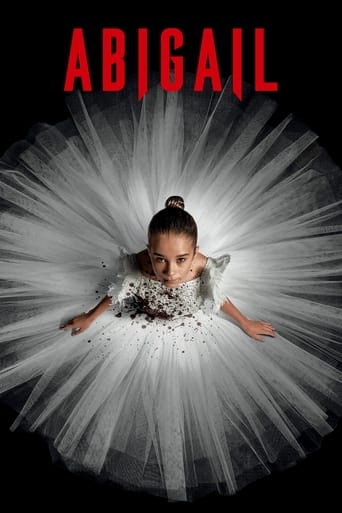
Revolution
The San Francisco scene in 1967-68. Documentary about hippies shot during the height of the movement . Viewpoints from many kinds of people. Music by Steve Miller Band, Mother Earth, Quicksilver Messenger Service and others.